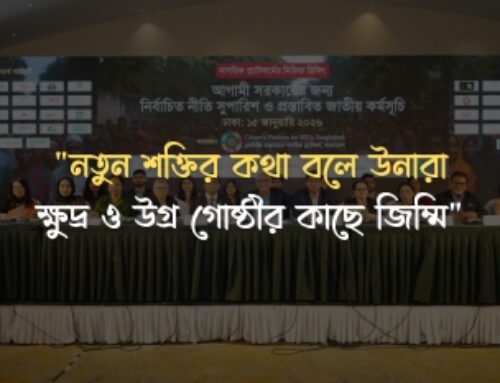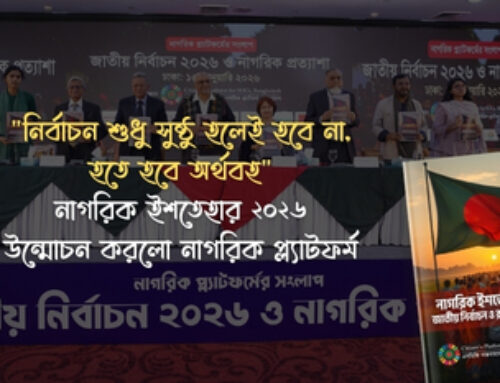
Marginalised and vulnerable populations (e.g. low-income groups living in urban areas, informal sector workers, women, indigenous and Dalit communities, transgender communities, and people with disability) have been disproportionately facing challenges of the COVID-19 induced pandemic. New groups of people (e.g. CSME entrepreneurs and returnee migrant workers) and new sources of vulnerabilities have also emerged out of the crisis. Moreover, poorer cohorts and women across all vulnerable groups remain among the worst affected. The disproportionate impacts are more of structural issues than policy induced phenomena. More than concerns for health risks, the loss of income induced by the economic slowdown and ensuing poverty and hunger have been the greater drivers of vulnerability. Policies addressing these concerns, no matter how good, are yet to deliver results in the absence of strong institutions.
These messages were highlighted at a webinar titled “The COVID-19 Discourse: Are we asking the right question?”, organised by the Citizen’s Platform for SDGs, Bangladesh in partnership with United Nations Development Programme (UNDP), ActionAid Bangladesh, Friedrich-Ebert-Stiftung (FES) Bangladesh, Plan International Bangladesh, WaterAid Bangladesh and Centre for policy Dialogue (CPD). The event was held virtually on Tuesday, 3 November 2020.
The event was organised by the Citizen’s Platform to share and garner feedback on the report titled “Examining the COVID-19 impact on the Leaving No One Behind (LNOBs) and Push No One Behind (PNOBs) in the context of Bangladesh: The Analytical and Empirical Choices and Challenges”. The study has been done under the Platform’s new initiative, “Strengthening Citizen’s Engagement in Delivering SDGs in view of COVID-19 Pandemic”.
Ms Sarah Sabin Khan, Senior Research Associate, CPD, and one of the authors of the paper, delivered the keynote presentation. She discussed the conceptual, analytical and methodological framework to identify the development challenges of the traditional and new marginalised groups in the context of COVID-19 pandemic. The developed framework in the paper will be applied to generate necessary field level data and relevant analyses. It proposes an opportunity to trace out which groups are more vulnerable and which areas to be noted by the policymakers as they set future policy priorities. It was suggested that the conceptual framework developed in the paper could be replicated through contextualisation in other developing countries.
The panel discussion commenced with comments from Dr Shantanu Mukherjee, Chief, Policy and Analysis Branch at Division for Sustainable Development, UN-DESA, New York. He suggested looking at trends over static levels and use of additional data. He also mentioned how countries are now thinking about policies along three parameters – scope, scale and design. While cope and scale looks at whether policies are covering enough people or not, design focuses on whether the policy interventions are of the right kind.
Dr Ibrahima Hathie, Research Director, Initiative Prospective Agricole et Rurale (IPAR), Dakar emphasised the need to capture multiple and overlapping vulnerabilities, households with migrant workers still living abroad and the approaches by governments to “build back better”.
Ms Elisabeth Bollrich, Programme Head on the Global Economy, FES, Berlin opined that the challenges in the medium-term is to protect the jobs but also to progress later gradually towards the reallocation of the resources. She warned about not getting complacent about the “building back better” narrative and acknowledging the complexities and trade-offs associated with transformations.
Dr Lorena Alcázar Valdivia, Senior Researcher, Group for the Analysis of Development, GRADE, Peru talked from the experience of Peru and the need for understanding of why some countries are suffering more from the health crises induced by the pandemic. She also suggested focusing on women and youth and their plights with regard to poverty, education and employment.
Dr Munshi Sulaiman, Regional Research Lead in Africa, BRAC Institute of Governance and Development, Kampala expressed his fears regarding exacerbation of inequality once vaccines or therapeutics are available against COVID-19. He suggested keeping this aspect in mind when framing the survey questions.
Ms Shannon Kindornay, Director, Research, Policy and Practice, Cooperation, Canada underscored the need to highlight the issue of climate change and its implications in the context of COVID-19 more in the research. She also recommended taking a deeper look at the issue of power participation and agencies, particularly of women, through this research.
Professor Mustafizur Rahman, Distinguished Fellow, CPD pointed out that the Bangladesh experience has also given some good examples of how food supply chains were maintained and how the first stimulus packages were distributed with the help of digital platforms.
Mr Towfiqul Islam Khan, Senior Research fellow, CPD, and one of the authors of the paper, responded to some of the issues raised by the webinar panellists. He mentioned that overlapping vulnerabilities would be considered as deeper problem for LNOB and PNOB groups. He also clarified that remittance would be a factored in the identification process of the vulnerable households. Finally, he mentioned how the three streams of the research programme will be conducted in a sequential but overlapping manner which will address some of the concerns raised by the panellists.
While ending the event with her special comments, Professor Rounaq Jahan, Distinguished Fellow, CPD, raised her concerns about the imminent second wave of the pandemic. She made a crucial point on the opportunity this study has to enquire about the differential impact of the disease on the health of vulnerable groups from an epidemiological perspective. The finding could then be matched with official data. Professor Jahan also emphasised the need to include political economy perspectives in analysing the topics in the paper.
Dr Debapriya Bhattacharya, Distinguished Fellow of CPD and Convenor of Citizen’s Platform for SDGs, Bangladesh, CPD, chaired the virtual discussion. He ended the event with the statement, “Asking the right question is more important than giving a right answer and that is how we are looking into refining our process and progress of the study.”
The discussion session was attended by a wide group of development professionals, academicians, private sector representatives, NGO workers and journalists.




